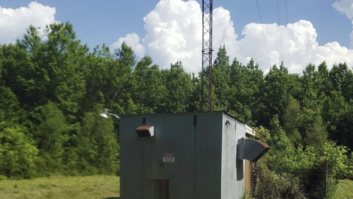The FCC has passed several items to benefit Native Americans’ access to communications. They include an effort to streamline its allotment and assignment procedures to make it easier get a radio station license to serve tribal areas.
The commission currently gives a preference for tribes and Alaska native villages that want a license for a new station to serve reservations and other tribal lands; but that preference excludes tribes that don’t have tribal land.
Commissioner Robert McDowell, who revealed a family link to “the great Cherokee Chief Sequoyah” during the open monthly meeting, said the commission will establish waiver procedures to allow native nations not located on tribal lands to make a detailed showing of why they should get an FM radio license.
The change is necessary, said Commissioner Michael Copps, because only some 312 out of 565 federally-recognized native nations actually live on reservations.
Chairman Julius Genachowski said the commission’s changes also apply to tribal lands that are small or irregularly shaped, adopting an alternative coverage standard to allow these tribes to take advantage of the tribal priority to provide radio coverage to their native communities. Less than one-third of 1 percent of the country’s radio stations are allocated to Native Americans, according to Copps.
In a Further Notice, the agency seeks comment on whether the FCC should adopt a tribal eligibility requirement or a tribal bidding credit to foster radio service by native nations on their lands.
“We cannot afford to leave any Americans behind,” and that includes “the original Americans,” said Copps. He said Native Americans’ access to basic communications service is far below the national average. Several Native American leaders who testified said their access to basic, wired telephone service is on average 68% compared to 98% for the rest of Americans. Copps estimated Native Americans’ access to the Internet at “certainly lower than 10%.”
Copps, who made Native American access to telecommunications a priority when he was temporary FCC chairman, called the situation “a national disgrace.”
The commission also adjusted its allotment priorities in its policies to promote rural radio service. The change essentially makes it more difficult to move an existing station from a rural market to an urban one, affecting city-of-license requests. The change affects proposals for new stations as well by making it harder to add stations to urban markets.
The FCC said the modifications are designed to ensure a fair distribution of radio service to small, less-well-served communities and rural areas as well as urbanized areas. Copps said the change was made to “avoid gaming our system that was designed to fairly distribute radio service.” McDowell said he has some concerns about how the decision may affect the long-term financial viability of some stations; he said he’d watch to see how reasonably flexible the revised approach turns out to be, noting that the change affects nearly 30 years of precedent that gave licensees “greater scope to make market-driven judgments.”
The chairman also announced the establishment of an FCC Native Nations Broadband Task Force, to be co-chaired by Geoffrey Blackwell, chief of the FCC’s Office of Native Affairs and Policy and a native nations leader.
Further details of the radio changes will be available when the agency releases the text of the decisions.
— Leslie Stimson











